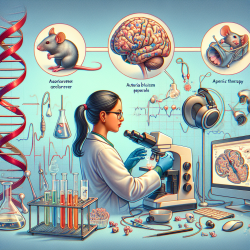Providing care for adolescents with rare diseases presents unique challenges and opportunities. A recent mixed systematic review titled "Barriers to and Facilitators of Providing Care for Adolescents Suffering from Rare Diseases" offers critical insights that can help practitioners improve their skills and enhance patient care.
Understanding the Research
The study by Tsitsani et al. (2023) examined barriers and facilitators of effective care for adolescents with rare diseases from the perspectives of patients and their parents. The researchers categorized these factors into five levels using the socio-ecological model for healthcare promotion:
- Intrapersonal
- Interpersonal
- Institutional/Organizational
- Community
- Public Policy
Key Barriers Identified
The study highlighted several barriers at different levels:
- Intrapersonal: Gaps in self-esteem and self-awareness among patients, along with inadequate psychosocial care for parents.
- Interpersonal: High levels of anxiety and depression among parents, and a lack of awareness and support from healthcare providers and schools.
- Institutional/Organizational: Shortages of expert professionals, fragmented care, and insufficient genetic testing facilities.
- Community: Inadequate training of primary care professionals and poor coordination among services.
- Public Policy: Limited public funding and pharmaceutical interest, along with ineffective national and regional health policies.
Facilitators for Improved Care
Despite these barriers, the study also identified several facilitators that can enhance care:
- Intrapersonal: Support from families, friends, and schools can empower adolescents and their caregivers.
- Interpersonal: Mutual trust between healthcare providers and families, and school-based interventions to improve social inclusion.
- Institutional/Organizational: Specialized centers with comprehensive resources and patient-held electronic health records.
- Community: Family-centered primary healthcare centers and peer-support resources.
- Public Policy: Increased public resources, expanded neonatal screening, and effective evaluation of integrative services.
Practical Steps for Practitioners
Practitioners can implement several strategies to overcome these barriers and leverage the facilitators:
- Enhance self-esteem and self-awareness programs for adolescents.
- Provide comprehensive psychosocial support for parents.
- Improve coordination and communication among healthcare providers.
- Advocate for increased public funding and effective healthcare policies.
- Promote awareness and education about rare diseases in schools and communities.
Encouraging Further Research
While this review provides valuable insights, further research is essential to continue improving care for adolescents with rare diseases. Practitioners are encouraged to stay informed through ongoing studies and contribute to the body of knowledge in this critical area.
To read the original research paper, please follow this link: Barriers to and Facilitators of Providing Care for Adolescents Suffering from Rare Diseases: A Mixed Systematic Review.










